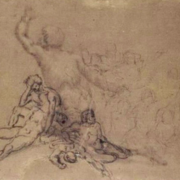Introduction to “groupal Oedipus and the primary scene in the network era”
Our era, which, after Lyotard, many people indicate as post-modern and which today some prefer to identify as “hyper-history”, is rapidly moving us towards a world we do not know, the “infosphere”, a world where technologies interact with other technologies, making the human being increasingly marginal and less involved of processes (Floridi, 2014).
In this world, what weight does the family have? What filtering capacity has it maintained, and will it be able to maintain before the extraordinary assaults of changes imposed by the so-called fourth revolution, linked to the development of information and communication technologies (ICT)? The Copernican revolution has displaced us from the center of the universe, the Darwinian revolution has put us outside the center of the biological realm, the Freudian revolution has made us loose the Read more

